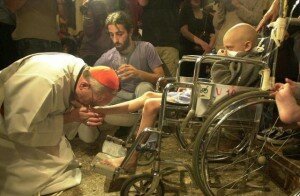Choosing a new pope is a bit of a mystery to most people. In the early Church, a pope was elected not only by the bishops but also by the clergy and the laity. In later years, only the bishops took part in the election. In some cases, political leaders or even bishops attempted to influence the election, which often led to conflicts within the Church and the naming of “antipopes,” those in opposition to the elected Pope. The foundation for the current process of electing a pope was laid in 1059 at the Lateran Council, although it has gone through much development since then.
The last Pope to resign was Pope Celestine V in 1294. Two other Popes resigned for Papal Political reasons and by prior arrangement and pragmatic compromise.

In 1045, Pope Benedict IX agreed, for financial advantage, to resign the papacy. Pope Gregory VI, who in order to rid the Church of the scandalous Benedict, had persuaded him to resign and became his successor. Gregory himself resigned in 1046 because the arrangement he had entered into with Benedict was considered simoniacal; that is, to have been paid for. Gregory’s successor, Pope Clement II, died in 1047 and Benedict IX became Pope again.
The best-known resignation of a Pope is that of Pope Celestine V in 1294. After only five months of pontificate, he issued a solemn decree declaring it permissible for a Pope to resign, and then did so himself. He lived two more years as a hermit and was later canonised. The Papal decree that he issued ended any doubt among canonists about the possibility of a valid Papal resignation.
Questions
- What do you think of Pope Benedict’s decision to resign on account of what he calls his ‘advanced age’? Should age be a barrier to continuing work?
- The Catholic Church has over one billion followers. What positive things would you try to do if you were made Pope for a day?
